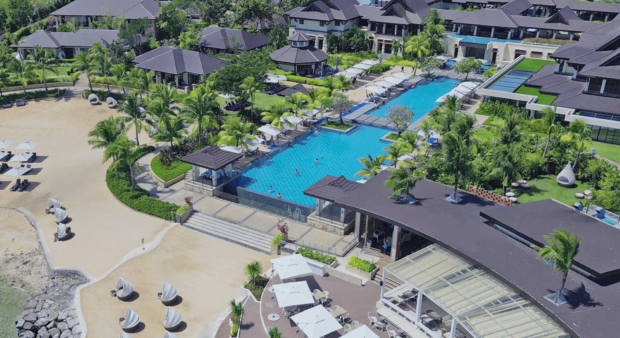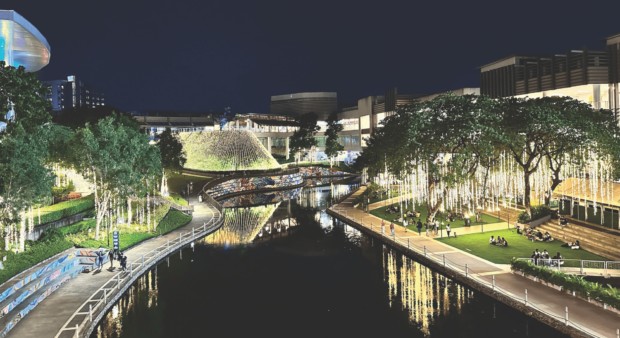We have an aging global population, and the Philippines is no exception. Thanks to modern medicine, the average life span is now 10 to 25 years longer than it was 50 years ago.
That’s the boon of modern science. We have specialists who focus on every single organ and prescribe medications and measures that can prolong life.
In 1969, the average life expectancy in the Philippines was 60.6 years. Now it’s 67 for males and 72.6 for females. The average for both genders is 69.3 years.
Although that’s almost nine years longer than our elders, it pales in comparison to countries like Singapore and Japan, where life expectancy is now more than 80 years.
There’s no question that the economic status of a country is a major factor determining the average life span of its citizens, but even those in countries like Thailand and Vietnam—classified as middle income like the Philippines—now have a longer life expectancy than Filipinos.
Does it mean the elderly in those countries have better health care and easier access to it? Well, possibly yes. There are many other factors, though. The life expectancy statistic involves the average life span of all citizens born, and if a country has a high infant or child mortality rate.
126th
We rank 126th globally in terms of life expectancy. How can Filipinos live longer? The average life expectancy pretty much sums up the socioeconomic, political and other parameters that determine whether a country is progressing.
I have this hypothesis that if one reaches the senior age of 60 with no major health issues—or these are adequately controlled, if one has hypertension, diabetes, arthritis and similar chronic illnesses—one can likely live up to age 80 and older, provided one has access to preventive and curative health care.
That’s the big catch. Such access—regular checkups, necessary vaccines like flu and pneumonia shots, good nutrient and supplements—entails costs. This is where the problem lies.
It is ironic that the elderly, majority of whom no longer have regular income, have to struggle with more medical bills to stay healthy and alive.
Paraphrasing the words of Sen. Sonny Angara, whom Gelyka Dumaraos, one of our writers, interviewed for an article in the July issue of H&L (Health & Lifestyle) magazine, our elderly worked so hard and sacrificed so much to take care of us when they were younger. Now that they’re old and weak, it’s our turn to take care of them and reciprocate the love that they’ve given us all these years.
Former Sen. Ed Angara, who originally authored laws that gave benefits and privileges to senior citizens, passed the torch to his son, Sen. Sonny, who has apparently made elderly care one of his priorities.
That’s a cultural gem of our country. We take care of our elderly grandparents, parents, aunts, uncles and other relatives. We don’t confine them in expensive, assisted-living homes even if we could afford to do so. We let them stay in our homes and hire caregivers to attend to their needs when we’re at work.
Advocacy
It’s heartening to note that our current Binibining Pilipinas Universe, Gazini Christiana Jordi Ganados, has also chosen care for our elderly as an advocacy. With her single-parent mom busy at work, she grew up in the care of her Filipino grandparents, who taught her to treat everyone with love, generosity and compassion.
When her lolo and lola grew old and became sickly, she returned their love, and took turns with other members of the family in taking care of them. She wished they were still around when she won the Binibining Pilipinas title last month.
Recently, I had the realization that I’m already elderly myself.
The Philippine Heart Association, the primary organization of all heart specialists in the country, bestowed on me the Life Achievement in Cardiology award during its annual convention last May 25. The award is usually given to an elderly member of the association, and is supposed to be a glorious cap to one’s career as a cardiologist.
Although I’m 65 and turning 66 in a few months, I thought it might have been a little premature, as I still have the passion and enthusiasm I had when I was a newly minted heart specialist.
I praise God I can still spell most words correctly, and can still prescribe appropriate medicines for my patients. Occasionally I get emergency calls from our training residents and fellows at Manila Doctors Hospital in the wee hours, when my sleep is at its deepest, but even in a semiconscious state, I can still make a fairly reasonable assessment of an emergency problem and what treatment to give.
My physical fitness is one big area for improvement, though, but it’s still par for the course—at least for my age. My wife Becky and I can still briskly walk more than 10 km a day (more than 20,000 steps) during travels. It’s actually Becky who’s the fitness buff, and somehow it rubs off on me. Now I can appreciate what some studies have conclude—that a spouse or partner can add years to one’s life.
I guess it’s partly a mindset, too. Although we urge that society treat its senior citizens with respect, the elderly—myself included—should banish any thought of vulnerability, and stop declaring at every occasion that they have limited time left in this world. Nobody, except God, can say how many more years we have left, so we have to keep ourselves busy with whatever makes us happy, fulfilled and meaningful to society.
Cheers to our elderly!













































